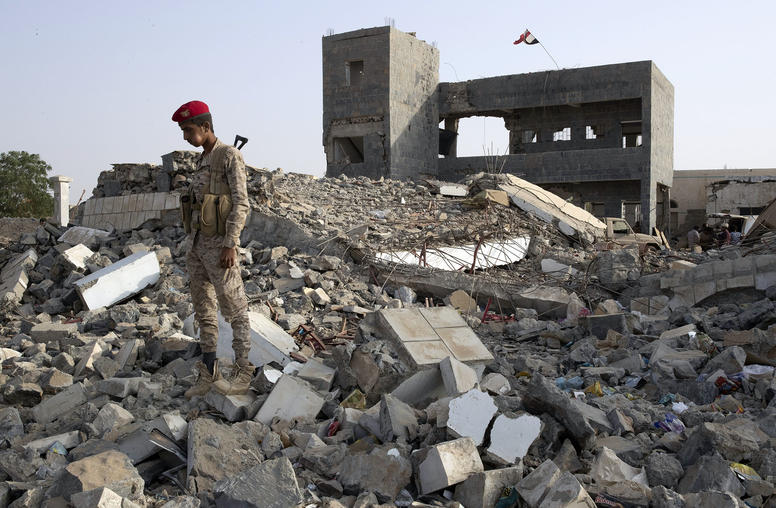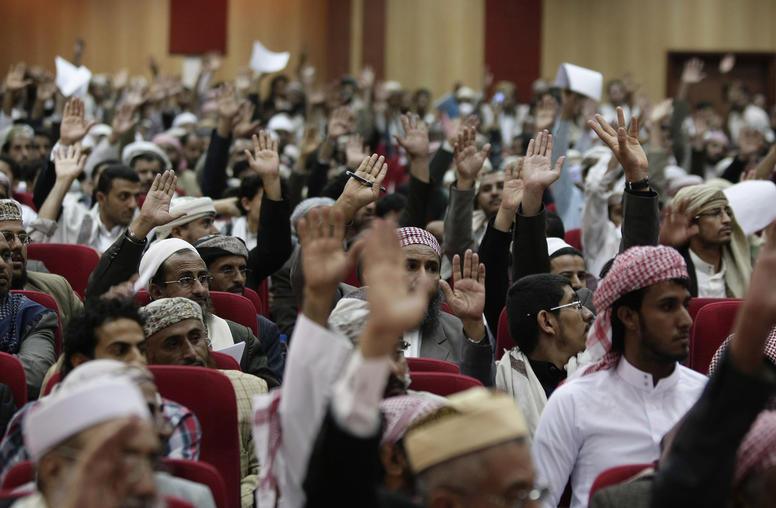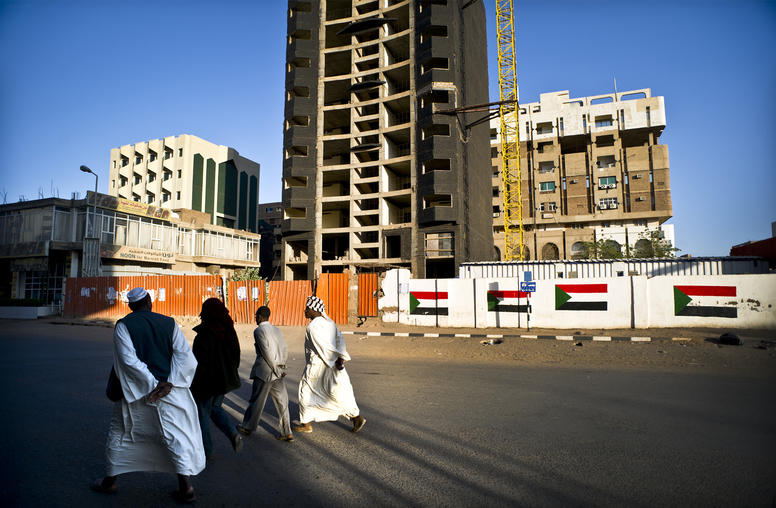Dispute Resolution and Justice Provision in Yemen’s Transition
Alternative dispute resolutions has long played an important role in Yemen. Since the Arab Spring protests and the transition that has followed, a growing number of Yemenis have utilized tribal and nontribal dispute resolution outside of the formal justice system due to fractures in state control and weakened state institutions. Because of this political instability, the tribal system has since weakened and new actors have emerged, causing the authority of both formal and informal actors to be challenged and making it more difficult to resolve disputes and prevent conflict. This report explores the challenges and obstacles that alternative dispute resolutions has faced since the transition in Yemen began and the efforts being made for its future, including research, programming, and engagement.
Summary
- Yemen has long had a vibrant tradition of community-based dispute resolution, particularly tribal dispute resolution, which has become even more dominant in the transition period that followed the 2011 Arab Spring protests.
- As the Yemeni state has struggled to regain political equilibrium, rule of law has deteriorated and criminality and armed conflict have increased. State institutions have weakened and now struggle to meet citizens’ demands.
- In response, citizens increasingly turn to traditional or community-based dispute resolution for their justice needs. In addition to long-standing actors or mechanisms, a number of new dispute resolution actors have emerged. Some areas have seen a retribalization, while in others, armed actors dominate.
- Although alternative dispute resolution actors have been an important gap-filler during this time, they have also found their authority challenged. The political uncertainty and the rise in lawlessness have simultaneously weakened both formal and informal actors’ ability to resolve disputes sustainably and to prevent conflict.
- The result has been more limited options for peaceful dispute resolution overall, which feeds instability and has the potential to exacerbate broader conflict dynamics and weaknesses in the rule of law.
- Strengthening the options for lower level dispute resolution and conflict prevention are critical to restoring stability. Because of the centrality of these community-based justice mechanisms in Yemen, efforts to strengthen rule of law must take a more holistic view of justice provision to include these mechanisms and practices.
- Program interventions should not preference or target one system over the other but instead take an integrated approach and consider the significant role that alternative dispute resolution plays.
- Critical elements include supporting greater understanding of and dialogue with dispute resolution actors, incorporating alternative dispute resolution into the justice sector strategy, and focusing on reforms and adaptions on both sides.
About the Report
This report focuses on the different means of dispute resolution—from the formal justice sector to tribal arbitration—available to citizens in Yemen and how these practices were affected by the 2011 crisis and transition phase that followed. It is derived from several United States Institute of Peace (USIP) studies on how the post-Arab Spring transition has affected rule of law, justice, and security in Yemen. USIP has been a leader in exploring customary or traditional dispute resolution practices and their relationship with formal justice mechanisms throughout its areas of work, including in Liberia, Sudan, Afghanistan, and Iraq.
About the Author
Erica Gaston is a senior USIP program officer for rule of law in Yemen and Afghanistan, where she has been engaged in programming and research on tribal and alternative dispute resolution. Nadwa al-Dawsari is a conflict and civil society specialist and an expert on tribes and tribal customary law in Yemen. She is the founder of Partners Yemen and has extensive experience in developing and implementing programs in conflict-sensitive environments.



